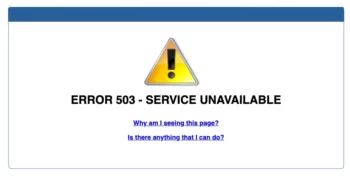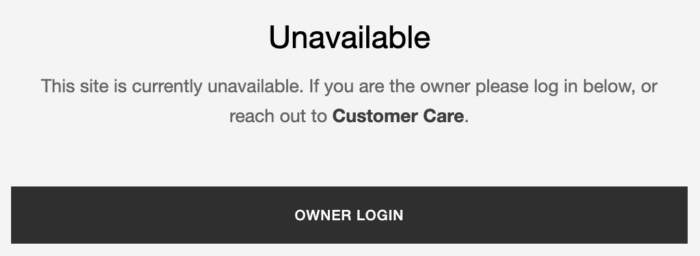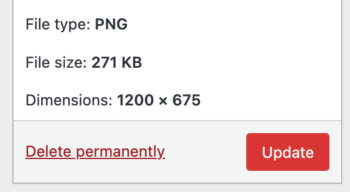The Fight to Save the Photo Stealers Website

For nearly 12 years now, photographer Corey Ann Balazowich has been operating the website Photo Stealers, a website dedicated to outing “photographers” who steal the work of other artists when setting up websites, social media accounts or entering contests.
There is a good chance that, if you are a reader of this site, you are already at least familiar with Balazowich’s work. However, for those who are not, the format of the site is as simple as it is consistent.
When Ann learns about an infringement, either through her own research or a tip, she combs through the body of work and finds examples of stolen images and posts them alongside the actual sources. The result is a catalog of over 300 posts calling out photographers who are filling out their portfolio with plagiarized work.
However, for the past few months, that effort has been under siege. As of this writing, Balazowich has been named as a defendant in a $100 million lawsuit and had her site briefly taken offline following a DMCA takedown notice.
Though her site is back online now, with a path to full recovery shortly, the story highlights the challenges many people face when trying to discuss plagiarism and copyright issues online, especially when the subjects of the articles are not happy about the attention.
The Story So Far
On January 11, 2024, Balazowich published an article about photographer Aellis Obtenebrix. For Balazowich the article was only unusual for two reasons, the first was the sheer volume of allegedly stolen photos, totaling nearly 300, and the number of pseudonyms that the individual goes by. However, his biggest presence was under the name Aellis D’Artisan or his business Seaside Boudoir.
In early February, Balazowich was added to an ongoing lawsuit that Obtenebrix had filed in California against other photographers who were accusing him of stealing images. The lawsuit seeks some $100 million in damages, including some $25 million for direct damages and another $75 million in punitive damages.
This prompted Balazowich to launch a GoFundMe campaign to help cover her legal costs, a campaign which has raised over $5,000, well over its $3,500 goal.
However, the story did not end there. Shortly after the original post went live, Obtenebrix filed a Digital Millennium Copyright Act (DMCA) takedown notice with Balazowich’s host, Hostgator. However, that notice did not, initially, result in any action by the host.
On March 7, 2024, he took to X (formerly Twitter) to complain about the lack of action. The next day, that notice was then forwarded to Balazowich, with a demand that the allegedly infringing items be removed. Those items included the post itself as well as the various images in it, which highlighted the allegations of photo theft.
Balazowich did attempt to comply with the notice, but Hostgator determined that her response was inadequate and shuttered the entire site days later. Initially, Balazowich lamented this as the possible end of the site and project. However, the site was shortly restored by Hostgator, without any official word on why, though the images in the post remain offline.
Balazowich has filed a counternotice regarding the images, though they cannot be restored until a fourteen-day waiting period has passed.
However, with her site back up, things have continued to go better for Balazowich. First, she filed a case with the Copyright Claims Board asking the board to rule that the takedown was false and award damages.
Also, since this ordeal went down, Obtenebrix’s site has gone offline, listed as “Unavailable.” Though it is impossible to know why the site was removed, the takedown is consistent with how its host, Squarespace, removes sites that violate their terms of service.

As of this writing, Obtenebrix’s site is still offline, Balazowich’s is available, though the lawsuit is still ongoing.
Where Things Went Wrong
For most people, the lawsuit is the most worrisome and scary thing about this case. Being sued, in general, is an expensive and time-consuming proposition. However, seeking $100 million in damages an eye watering amount.
However, as an article by DIY Photography points out, this case is not likely to last long or go anywhere. Even if Balazowich’s original post was wrong, which I do not believe it is, it is well-researched and has a large amount of evidence. Making a libel argument stick is going to be almost impossible, especially in California. However, even if it does stick, there is virtually no chance of damages approaching anywhere near $100 million.
But, while this is inconvenient and expensive, it is also hard to say that anyone, other than Obtenebrix, did anything wrong. In the United States, anyone can sue anyone for any reason at any time. Though that right can be taken away under certain circumstances, individuals generally have a right to the courts.
Where something clearly went wrong was with Hostgator, Balazowich’s host. Hostgator originally ignored the DMCA notice in January. However, we do not know why they ignored it. We also do not know why, months later, they opted to enforce it, though the timing suggests the Twitter posts played a role.
I would never advise a host to outright ignore a full and complete DMCA notice unless there are clear reasons to suspect that the notice is false. However, there were definite warning signs here.
The biggest of those warning signs is that the filer is targeting a post that is critical of them. That is a pretty clear sign that the actual concern is not copyright related. Furthermore, the post itself demonstrates that the images were, most likely, stolen. This means that the filer does not own the images at issue.
But, even if they chose to act on the notice, they did not provide enough information for Balazowich to comply with it. Balazowich is familiar with the DMCA process and the fact that she tried, but failed, to comply with the notice should be a warning sign that the process may be confusing.
According to her posts, she was unclear about what the notice was targeting what specific steps she needed to take to address the issue. But, even if she had attempted to remove the images, she might not have been successful.

Since Balazowich used WordPress, deleting or unpublishing a post does not necessarily remove the images associated with it. That would have to be done in the media library. Unfortunately. WordPress does not offer an easy way to unpublish images, only delete them.
If anyone knows of a solution for this, or a plugin that can do it, please let me know.
Update: After speaking with Balzowich, she confirmed that she did remove the images, but Hostgator still shuttered the site. Still, I would be interested in a way to quickly unpublish or make private images.
Still, deleting the images would have been preferrable to taking the entire site offline. While it would still be a headache, it would at least ensure that 12 years of history does not disappear overnight.
While disabling access to a domain is sometimes necessary to respond to a DMCA notice, it should be an absolute last resort for cases where the customer is either not responding or is being deliberately belligerent. Not for customers who are making a good faith effort.
Bottom Line
The situation points to the difficulties in running a site like Photo Stealers. Threats of litigation, dubious takedown notices and other threats are common.
Personally, I have been incredibly lucky. I have never been sued, and the handful of times legal threats escalated I have lawyers who I know and work with and have helped me with minimal headache and expense. I have also never been the subject of a false DMCA takedown, at least not on this site.
That said, I have also been very careful. My degree is in journalism, and I follow the practices I was taught in school to ensure that I have multiple sources for every claim, provide links and other supporting evidence as I go and work to ensure that I am always doing my due diligence.
However, I can say the same for Balazowich. She has always been incredibly careful and backs up all her claims with compelling evidence, overwhelming evidence in this case.
The truth is, talking about plagiarism, copyright infringement and related issues results in people getting mad, especially when you are calling them out for their misdeeds. Though rare, sometimes those feelings translate into legal threats and, even more rarely, lawsuits and takedowns.
Balazowich, for her part, has handled the situation well. She has not backed down even as some of those around her did. I have incredible respect for her strength in what has clearly been a challenging time.
Hopefully, this can be a lesson for not just Hostgator, but all hosting providers, on how to handle these kinds of (admittedly rare) cases. Even though this is clearly an edge case when it comes to DMCA issues, it is one that hosts need to be prepared for.
Want to Reuse or Republish this Content?
If you want to feature this article in your site, classroom or elsewhere, just let us know! We usually grant permission within 24 hours.
